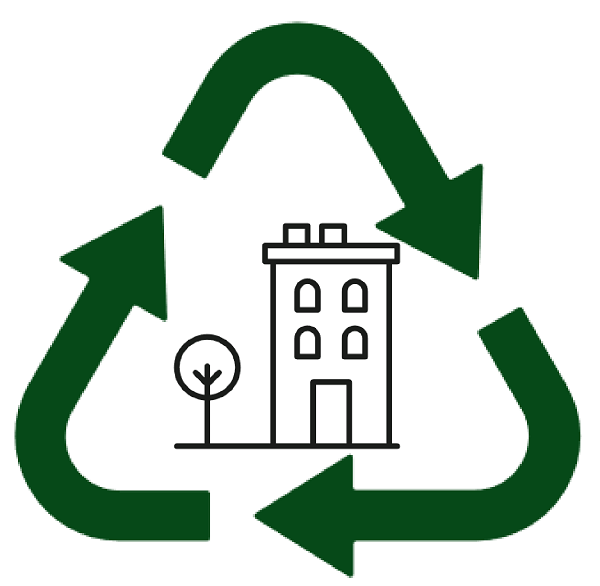Lily Schwartz is a fellow in the 2018 Leaders in Environment and Finance (LEAF) program. As part of the LEAF Fellowship, Lily spent the summer of 2018 working as a technical assistance intern for The Recycling Partnership, a nonprofit organization that leverages corporate partner funding to improve recycling in cities and counties across the United States. Lily helped The Recycling Partnership to assess the nation’s current landscape for multifamily recycling and examine policies for moving forward.
There are many examples where families living in multifamily properties, such as apartment buildings and condominiums, have different levels of access than residents of single-family homes to important environmental services and programs. In the past, the Environmental Finance Center at the University of North Carolina at Chapel Hill (EFC) has carried out applied research on a range of multifamily services, including access to energy efficiency programs and water bill assistance programs. Multifamily housing makes up nearly one-fifth of the total housing stock in the United States, with more than 20 million occupied housing units. In spite of this, a recent study found that less than 4 million people live in communities where recycling services are automatically provided to multifamily properties. Increasing access to convenient recycling services for multifamily residents can lead to environmental benefits by increasing resource recovery and reducing the water and air emission impacts of landfills and virgin material use. Better understanding current service practices and barriers to service expansion can help improve future service.
During the summer of 2018, a Leaders in Environment and Finance (LEAF) fellow from the EFC worked with The Recycling Partnership to assess the nation’s current landscape for multifamily recycling by conducting interviews with recycling programs leaders for all 50 states and 67 different municipalities.




